HBR Press Quantity Sales Discounts
Harvard Business Review Press titles are available at significant quantity discounts when purchased in bulk for client gifts, sales promotions, and premiums. Special editions, including books with corporate logos, customized covers, and letters from the company or CEO printed in the front matter, as well as excerpts of existing books, can also be created in large quantities for special needs.
For details and discount information for both print and ebook formats, contact booksales@harvardbusiness.org, tel. 800-988-0886, or www.hbr.org/bulksales.
Copyright 2019 David Weinberger
All rights reserved
No part of this publication may be reproduced, stored in or introduced into a retrieval system, or transmitted, in any form, or by any means (electronic, mechanical, photocopying, recording, or otherwise), without the prior permission of the publisher. Requests for permission should be directed to , or mailed to Permissions, Harvard Business School Publishing, 60 Harvard Way, Boston, Massachusetts 02163.
The web addresses referenced in this book were live and correct at the time of the books publication but may be subject to change.
Library of Congress Cataloging-in-Publication Data
Names: Weinberger, David, 1950 author.
Title: Everyday chaos : technology, complexity, and how were thriving in a new world of possibility / David Weinberger.
Description: Boston, Massachusetts : Harvard Business Review Press, [2019] | Includes bibliographical references and index.
Identifiers: LCCN 2018049644 | ISBN 9781633693951 (hardcover)
Subjects: LCSH: Chaotic behavior in systemsIndustrial applications. | Prediction theoryTechnological innovations. | Economic forecasting. | Technological innovations.
Classification: LCC Q172.5.C45 W44 2019 | DDC 006.3/101dc23 LC record available at https://lccn.loc.gov/2018049644
CONTENTS
- Introduction
Everything All at Once - Chapter One
The Evolution of Prediction - Chapter Two
Inexplicable Models - Chapter Three
Beyond Preparation: Unanticipation - Chapter Four
Beyond Causality: Interoperability - Chapter Five
Strategy and Possibility - Chapter Six
Progress and Creativity - Chapter Seven
Make. More. Meaning.
Introduction
Everything All at Once
Deep Patient doesnt know that being knocked on the head can make us humans dizzy or that diabetics shouldnt eat five-pound Toblerone bars in one sitting. It doesnt even know that the arm bone is connected to the wrist bone. All it knows is what researchers at Mount Sinai Hospital in New York fed it in 2015: the medical records of seven hundred thousand patients as discombobulated data, with no skeleton of understanding to hang it all on. Yet after analyzing the relationships among these blind bits, not only was Deep Patient able to diagnose the likelihood of individual patients developing particular diseases, it was in some instances more accurate than human physicians, including about some diseases that until now have utterly defied predictability.
If you ask your physician why Deep Patient thinks it might be wise for you to start taking statins or undergo preventive surgery, your doctor might not be able to tell you, but not because shes not sufficiently smart or technical. Deep Patient is a type of artificial intelligence called deep learning (itself a type of machine learning) that finds relationships among pieces of data, knowing nothing about what that data represents. From this it assembles a network of information points, each with a weighting that determines how likely the points its connected to will fire, which in turn affects the points theyre connected to, the way firing a neuron in a brain would. To understand why Deep Patient thinks, say, that theres a 72 percent chance that a particular patient will develop schizophrenia, a doctor would have to internalize those millions of points and each of their connections and weightings. But there are just too many, and they are in relationships that are too complex. You as a patient are, of course, free to reject Deep Patients probabilistic conclusions, but you do so at a risk, for the reality is that we use blackbox diagnostic systems that cannot explain their predictions because in some cases they are significantly more accurate than human doctors.
This is the future, and not just for medicine. Your phones navigation system, type-ahead predictions, language translation, music recommendations, and much more already rely on machine learning.
As this form of computation gets more advanced, it can get more mysterious. For example, if you subtract the number of possible chess moves from the number of possible moves in the Chinese game of go, the remainder is still many times larger than the number of atoms in the universe. Yet Googles AI-based AlphaGo program routinely beats the top-ranked human players, even though it knows nothing about go except what its learned from analyzing sixty million moves in 130,000 recorded games. If you examine AlphaGos inner states to try to discover why it made any one particular move, you are likely to see nothing but an ineffably complex set of weighted relationships among its data. AlphaGo simply may not be able to tell you in terms a human can understand why it made the moves that it did.
Yet about an AlphaGo move that left some commenters literally speechless, one go master, Fan Hui, said, Its not a human move. Ive never seen a human play this move. Then, softly, So beautiful. Beautiful. Beautiful. Beautiful.
Deep learnings algorithms work because they capture better than any human can the complexity, fluidity, and even beauty of a universe in which everything affects everything else, all at once.
As we will see, machine learning is just one of many tools and strategies that have been increasingly bringing us face to face with the incomprehensible intricacy of our everyday world. But this benefit comes at a price: we need to give up our insistence on always understanding our world and how things happen in it.
We humans have long been under the impression that if we can just understand the immutable laws of how things happen, well be able to perfectly predict, plan for, and manage the future. If we know how weather happens, weather reports can tell us whether to take an umbrella to work. If we know what makes people click on one thing and not another in their Facebook feeds, we can design the perfect ad campaign. If we know how epidemics happen, we can prevent them from spreading. We have therefore made it our business to know how things happen by discovering the laws and models that govern our world.
Given how imperfect our knowledge has always been, this assumption has rested on a deeper one. Our unstated contract with the universe has been that if we work hard enough and think clearly enough, the universe will yield its secrets, for the universe is knowable, and thus at least somewhat pliable to our will.
But now that our new tools, especially machine learning and the internet, are bringing home to us the immensity of the data and information around us, were beginning to accept that the true complexity of the world far outstrips the laws and models we devise to explain it. Our newly capacious machines can get closer to understanding it than we can, and they, as machines, dont really understand anything at all.
This, in turn, challenges another assumption we hold one level further down: the universe is knowable to us because we humans (weve assumed) are uniquely able to understand how the universe works. At least since the ancient Hebrews, we have thought ourselves to be the creatures uniquely made by God with the capacity to receive His revelation of the truth. Since the ancient Greeks, weve defined ourselves as the rational animals who are able to see the logic and order beneath the apparent chaos of the world. Our most basic strategies have relied on this special relationship between us and our world.

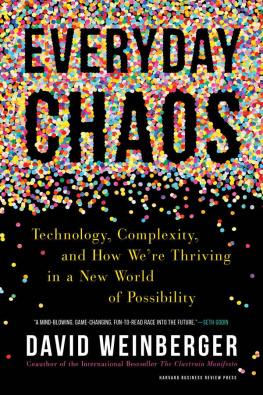
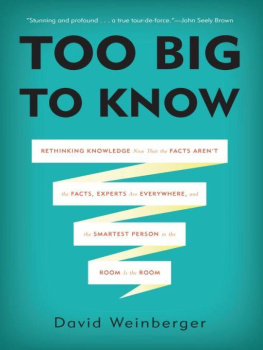
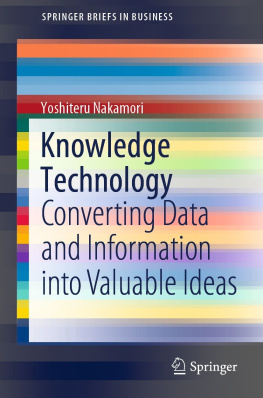
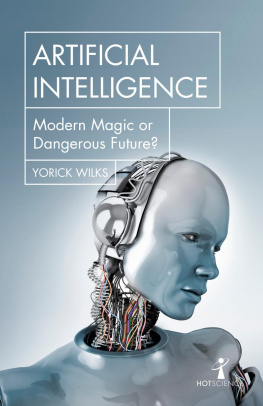
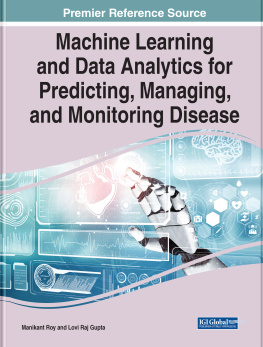

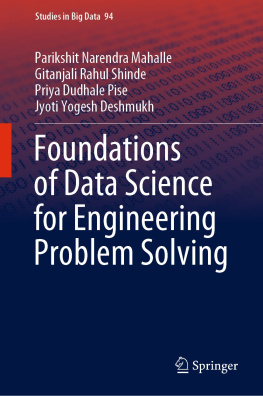
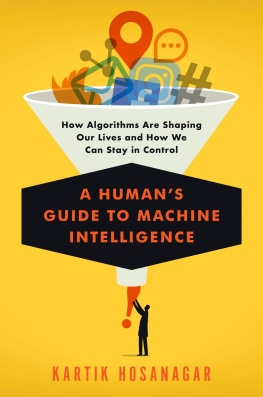
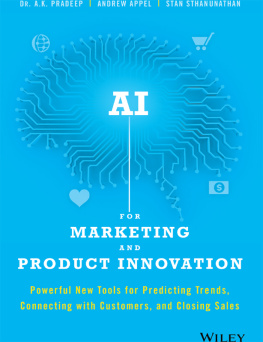
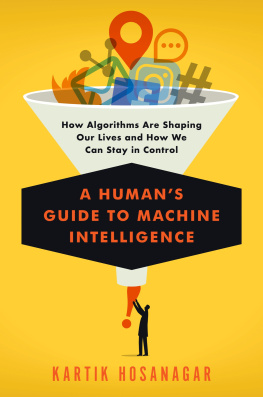
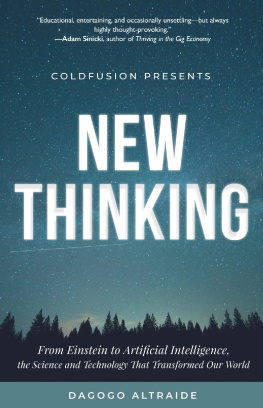
![Jim Sterne [Jim Sterne] - Artificial Intelligence for Marketing](/uploads/posts/book/124040/thumbs/jim-sterne-jim-sterne-artificial-intelligence.jpg)